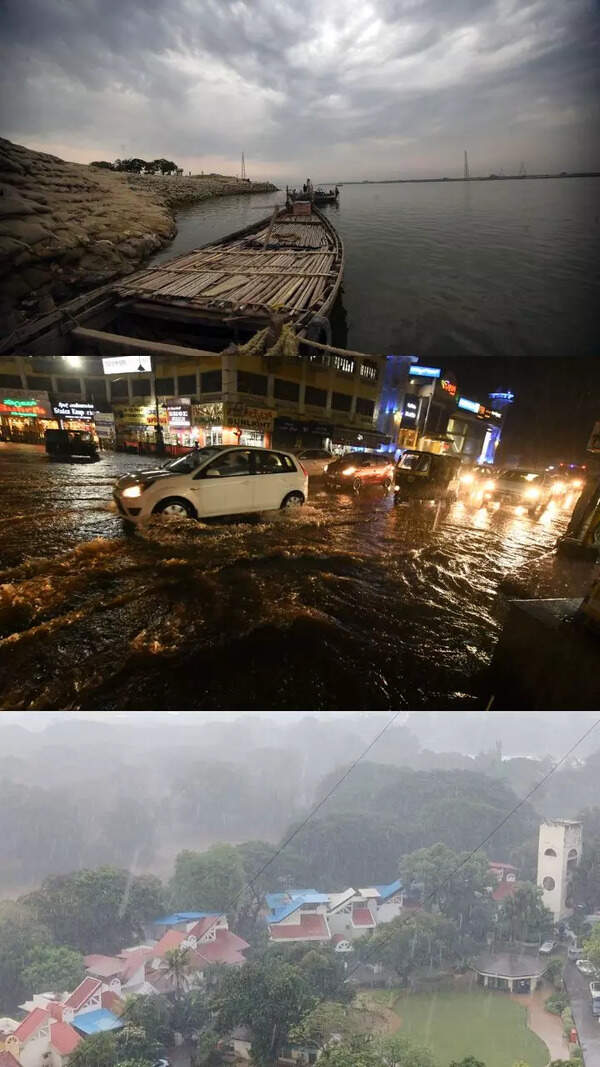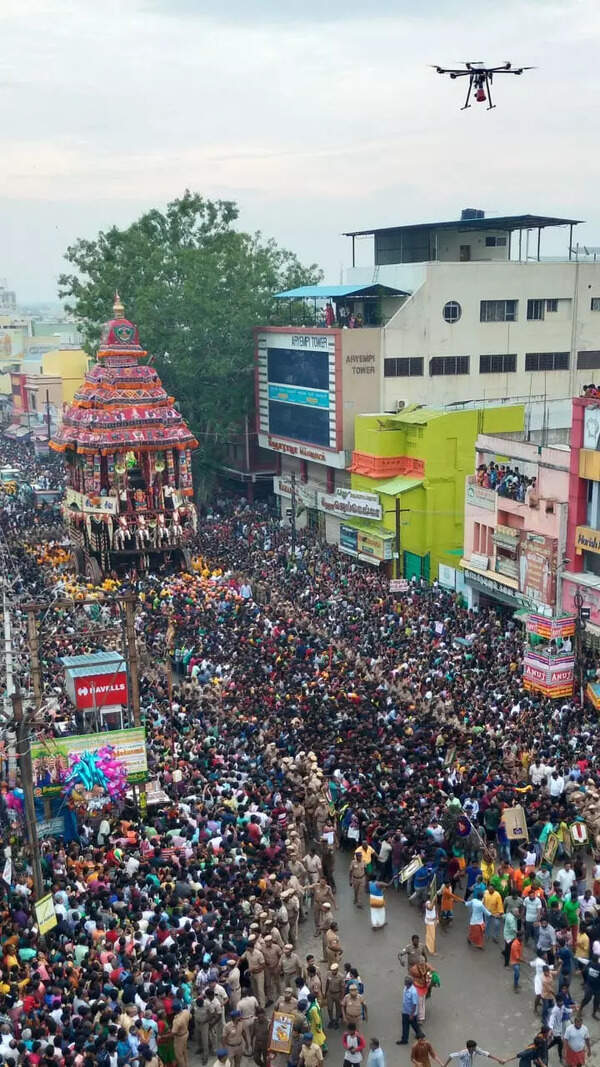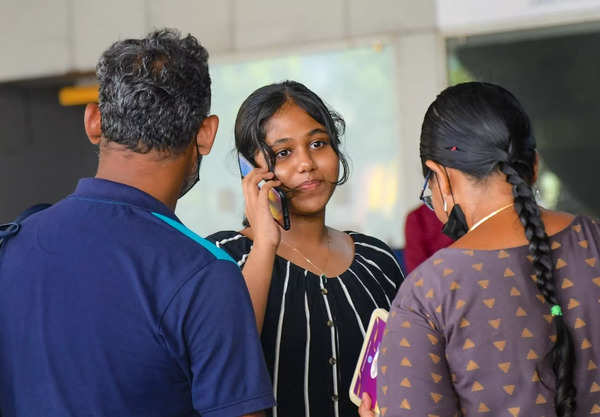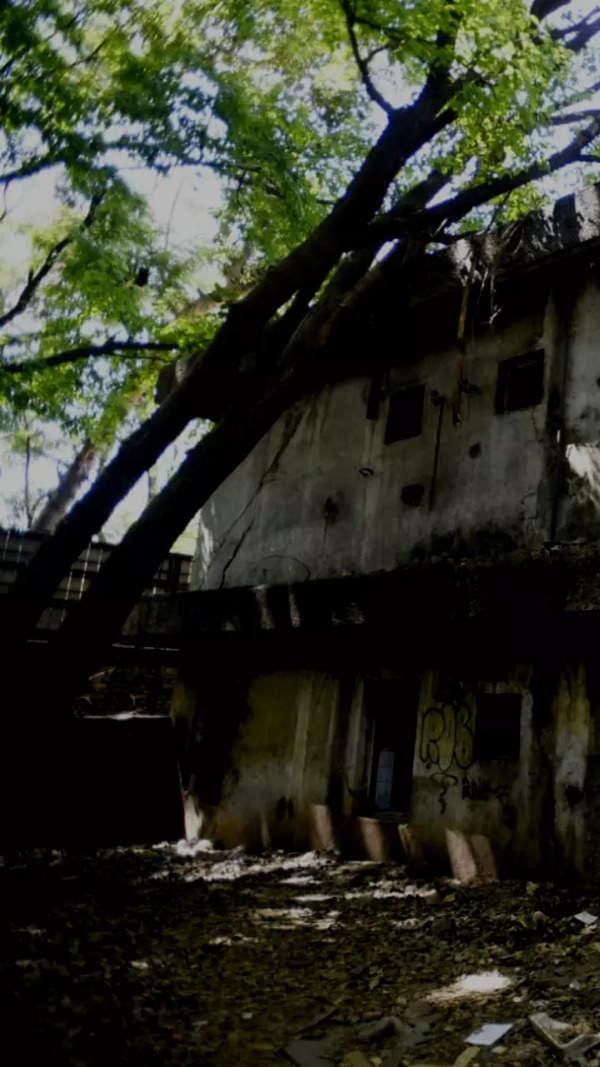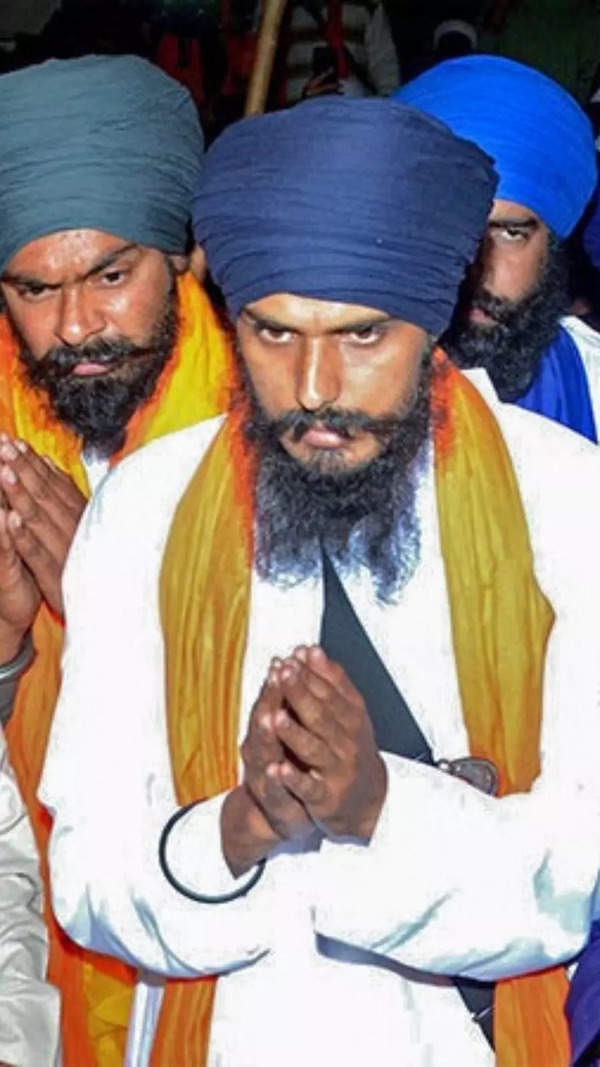- News
- City News
- allahabad News
- Gyanvapi case: Allahabad HC allows scientific study to fix ‘shivling’ age
Trending Topics
Gyanvapi case: Allahabad HC allows scientific study to fix ‘shivling’ age
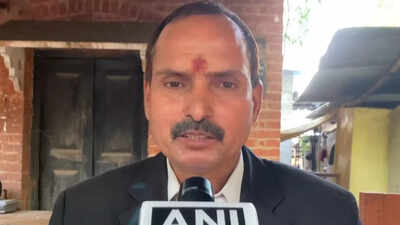
PRAYAGRAJ: The Allahabad high court authorised Friday a scientific study to determine the antiquity of the purported shivling found in the ablution pond of the Gyanvapi mosque complex in Varanasi during a court-mandated survey on May 16 last year.
Justice Arvind Kumar Mishra's order came on a revision petition by four Hindu plaintiffs, challenging the Varanasi district court's October 14 ruling against their plea for carbon dating and scientific determination of the structure by ASI.
The Hindu side believes the structure retrieved from inside the ablution pond of the Gyanvapi mosque is a shivling. The Anjuman Islamia Masajid, which manages the mosque, claims it is a fountain. The antecedents of the case, which has spawned multiple litigations, lie in five Hindu women filing a suit in a local court for unhindered daily access to the Gyanvapi complex to worship Shringar Gauri and other deities along its periphery.
The high court's order to carry out a scientific study was based on the ASI's response to its November 4, 2022 directive for expert opinion on whether any exercise involving carbon-dating, ground-penetrating radar (GPR), excavation and other methods to determine the structure's age was feasible. The bench specifically wanted to know if any or a combination of these methods was likely to cause any damage to the structure.
After several reminders, the ASI submitted a 52-page report on April 17 this year, specifying that the antiquity of the structure could be scientifically determined without any damage. The report cited studies by IIT Kanpur, IIT Roorkee, Lucknow's Birbal Sahni Institute and another institute.
The court also considered the suggestions of Javed N Malik of the department of earth sciences at IIT Kanpur. Malik said a detailed subsurface survey through GRP was critical to identifying the remains of any ancient structure, if any, buried at the disputed site.
Vishnu Shankar Jain, counsel for plaintiff Laxmi Devi and three other women, had argued that the district judge passed the impugned order "without any basis" when he should have sought ASI's expert opinion on whether carbon dating of the purported shivling could be done without causing any harm to it.
The government counsel said the state would have no objection to any such exercise as long as the "real nature" of the structure could be scientifically determined.
The order for a comprehensive survey of the Gyanvapi mosque complex came from the court of the Varanasi civil judge (senior division) on April 8 last year. The Gyanvapi management moved the Supreme Court against the survey, leading to the case being transferred to the Varanasi district court.
Four out of five original plaintiffs next filed a plea before the district judge for carbon dating of the structure deemed to be a shivling. While dismissing the plea, the court cited the Supreme Court order to ensure no damage is caused to the structure.
"If carbon dating or ground penetrating radar is permitted, and if any damage is caused to the 'shivling', then it would be a violation of the Supreme Court order to protect it. This might also hurt religious sentiments," the district judge said.
Watch Gyanvapi case: “Order was in favour…” says Hindu side lawyer after court’s order to ASI on ‘Shivling’
Justice Arvind Kumar Mishra's order came on a revision petition by four Hindu plaintiffs, challenging the Varanasi district court's October 14 ruling against their plea for carbon dating and scientific determination of the structure by ASI.
The Hindu side believes the structure retrieved from inside the ablution pond of the Gyanvapi mosque is a shivling. The Anjuman Islamia Masajid, which manages the mosque, claims it is a fountain. The antecedents of the case, which has spawned multiple litigations, lie in five Hindu women filing a suit in a local court for unhindered daily access to the Gyanvapi complex to worship Shringar Gauri and other deities along its periphery.
The high court's order to carry out a scientific study was based on the ASI's response to its November 4, 2022 directive for expert opinion on whether any exercise involving carbon-dating, ground-penetrating radar (GPR), excavation and other methods to determine the structure's age was feasible. The bench specifically wanted to know if any or a combination of these methods was likely to cause any damage to the structure.
After several reminders, the ASI submitted a 52-page report on April 17 this year, specifying that the antiquity of the structure could be scientifically determined without any damage. The report cited studies by IIT Kanpur, IIT Roorkee, Lucknow's Birbal Sahni Institute and another institute.
The court also considered the suggestions of Javed N Malik of the department of earth sciences at IIT Kanpur. Malik said a detailed subsurface survey through GRP was critical to identifying the remains of any ancient structure, if any, buried at the disputed site.
Vishnu Shankar Jain, counsel for plaintiff Laxmi Devi and three other women, had argued that the district judge passed the impugned order "without any basis" when he should have sought ASI's expert opinion on whether carbon dating of the purported shivling could be done without causing any harm to it.
The government counsel said the state would have no objection to any such exercise as long as the "real nature" of the structure could be scientifically determined.
The order for a comprehensive survey of the Gyanvapi mosque complex came from the court of the Varanasi civil judge (senior division) on April 8 last year. The Gyanvapi management moved the Supreme Court against the survey, leading to the case being transferred to the Varanasi district court.
Four out of five original plaintiffs next filed a plea before the district judge for carbon dating of the structure deemed to be a shivling. While dismissing the plea, the court cited the Supreme Court order to ensure no damage is caused to the structure.
"If carbon dating or ground penetrating radar is permitted, and if any damage is caused to the 'shivling', then it would be a violation of the Supreme Court order to protect it. This might also hurt religious sentiments," the district judge said.
Watch Gyanvapi case: “Order was in favour…” says Hindu side lawyer after court’s order to ASI on ‘Shivling’
Start a Conversation
FOLLOW US ON SOCIAL MEDIA
FacebookTwitterInstagramKOO APPYOUTUBE




